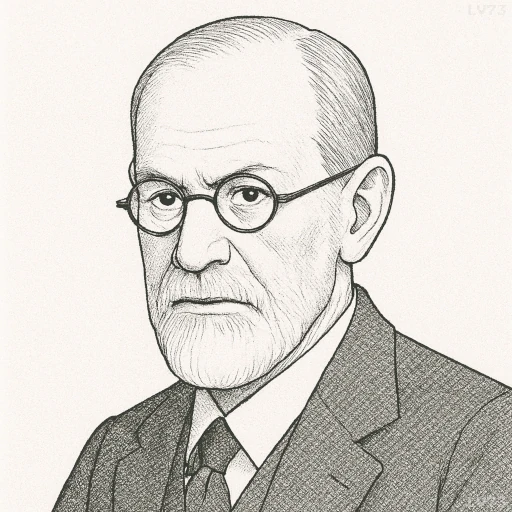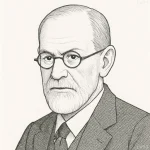“One is very crazy when in love.”

- May 6, 1856 – September 23, 1939
- Austrian
- Neurologist, Founder of Psychoanalysis
table of contents
Quote
“One is very crazy when in love.”
Explanation
In this brief and candid observation, Freud captures the irrational intensity of romantic love, noting how it often overrides reason, restraint, and everyday behavior. To be in love, he suggests, is to enter a psychological state of altered perception and heightened emotion, where idealization, obsession, and even delusion can take hold. The “craziness” he refers to is not merely poetic—it reflects the psychodynamic forces at play when powerful unconscious desires become focused on a single object of affection.
Freud viewed love as a form of libidinal investment, in which the ego directs emotional and instinctual energy (libido) onto another person. In doing so, the lover often loses part of their autonomy, becoming dependent, vulnerable, and prone to irrational acts. This “madness” is not pathology, but a natural result of the fusion between unconscious desire and idealization, where the beloved becomes a substitute for lost or unfulfilled wishes rooted in early emotional experiences.
In modern psychology, this view resonates with findings in neuroscience and attachment theory, which show that romantic love activates areas of the brain associated with reward, risk-taking, and even obsession. Freud’s quote remains a timeless reminder that love is not only a feeling, but a complex psychological event—one that can both elevate and unbalance us. It reveals how even our most cherished experiences are shaped by forces beyond conscious control, where passion often defies logic.
Would you like to share your impressions or related stories about this quote in the comments section?

